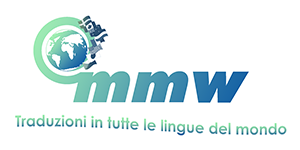Official translations are are no other than translations sworn before a state official in the presence of an offical translator or before a Notary Public who officialises the oath.
The procedure in Italy for translations commonly referrred to as “sworn” is legally termed officialisation.
In Italy, contrary to that which occurs in Germany for example, it is not the translator who is “sworn in” (therefore there is no “officialised translator”), but each translation. Maybe not everyone knows that translators are not yet a legally-recognised professional category in Italy like doctors, accountants or lawyers.
Officialisation entails taking an oath before a state official, which is generally a clerk at the Court with jurisdiction for the Municipality in which the translator resides. The source text – either in original or authenticated format – and respective translation must be bound to make a single file that cannot be separated. The so-called statement of oath must be attached as the last page of the file, the content of which should be obtained by the relative Court. A duty stamp is required every four pages of the translation and one on the statement of oath.
Sworn or official translations should not be confused with legalised translations, although these terms are often mistakenly used as synonyms. In fact, legalisation or apostille is a procedure carried out by the Public Prosecutor’s Office or the Prefect’s Office on sworn or original documents in order for them to be recognised abroad. In fact, a foreign document translated and sworn in Italian and is therefore only used in Italy cannot be legalised or apostilled.
